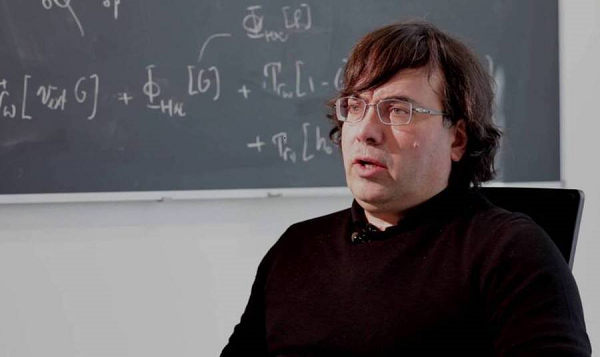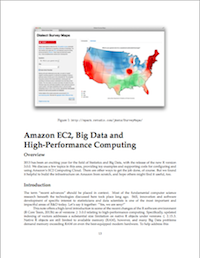
Nicola Marzari
June 20, 2022 — The Partnership for Advanced Computing in Europe (PRACE) has announced that the first edition of the PRACE HPC Excellence Award has been awarded to the team of Nicola Marzari of EPFL (École polytechnique fédérale de Lausanne) and NCCR MARVEL (a centre on Computational Design and Discovery of Novel Materials created by the Swiss National Science Foundation). The award recognizes an “outstanding individual or team for ground-breaking research that leads to significant scientific advances through the usage of HPC,” PRACE said.
The award and a prize sum of € 20 000, along with a keynote slot at PASC22, was awarded to:
- Mounet, M. Gibertini, P. Schwaller, D. Campi, A. Merkys, A. Marrazzo, T. Sohier, I. E. Castelli, A. Cepellotti, G. Pizzi, and Marzari, who is director of EPFL and NCCR MARVEL) for their work on two-dimensional materials from highthroughput computational exfoliation of experimentally known compounds, as described in their publication in Nature Nanotechnology 13, 246–252 (2018).
“This is terribly exciting, and a wonderful reward for the care we put in building a model for computational materials discovery, and more broadly for computational science: addressing verification and validation, reliability and robustness, reproducibility and dissemination, all in an open-source, open-access model,” Marzari said. “Everyone will be energised by such acknowledgment – and all believe we are exploring a novel dimension for HPC-enabled computational science that will become ever more precious and fruitful in the years to come.”
He added that his team was inspired by an investigation by Lebegue and co-workers [Phys. Rev. X 3, 031002 (2013)] that identified 92 monolayers by data mining a subset of the International Crystallographic Structural Database (ICSD), looking for high-symmetry structures displaying a sufficient amount of vacuum in between prospective layers along the principal direction. Elementary electronic properties, like energy bands, were then computed using density-functional theory. The purely geometric selection criterion and the limited number of first-principles simulations did not require an intensive use of HPC infrastructures.
PRACE said Marzari and his colleagues wanted to go beyond a simple geometric criterion and to set up a full digital twin of an exfoliation experiment, supported by a fully automated HPC framework relying on the recent development of high throughput approaches, powered by the constant pace at which simulations become faster and more efficient, and pioneered by J. Norskov at DTU and G. Ceder at MIT, and their collaborators – identifying the challenges associated with the large number of calculations involved, and the rising need for a dedicated infrastructure to produce, manage and automate a large amount of scientific data, while providing a full dissemination, in an open-access model, of all the calculations involved.
The Prize Committee stated: “This cornerstone work outlines the role of accurate first-principle simulations as an effective tool for materials discovery through the usage of high-performance computing. The developed digital twin of an exfoliation experiment has already had an exceptional impact in the field, leading to the discovery of new materials, in particular quantum materials.”
“With the newly created HPC Excellence Award, PRACE honours the most distinguished projects and researchers in the field of HPC and can be given to any individual or team that demonstrates that the work has been communicated and peer-reviewed within five years preceding the nomination deadline,” the organization said.
source: PRACE



